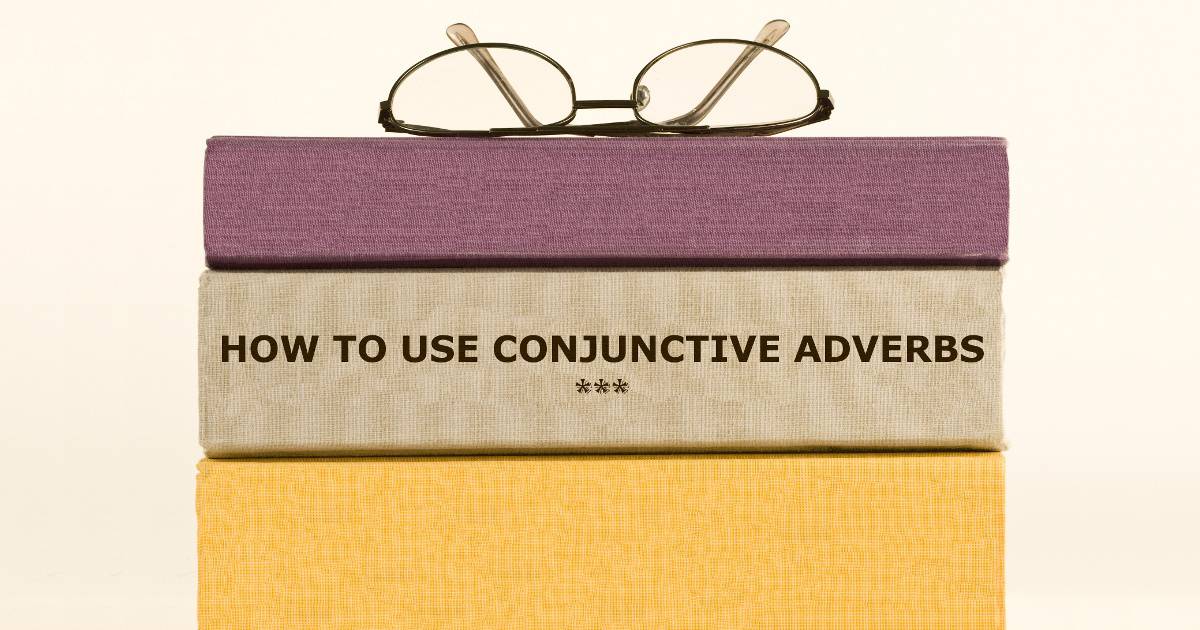Whether writing an original story or composing customized SEO content for work, I love to use words to convey a particular feeling or message. Sometimes this means waxing eloquent, which was extremely useful when I was trying to meet my minimum page count while writing my Master’s thesis, and sometimes it means being concise, such as trying to squeeze a book’s worth of information into a 200-word article. Incidentally, the use of conjunctive adverbs is beneficial to not only waxing poetic but also to creating intelligent and high-quality content.

What Are Conjunctive Adverbs?
Conjunctions are used to connect words, clauses and phrases. Adverbs qualify adjectives, verbs or other adverbs. Many people remember adverbs as words that end in –ly; however, there are many adverbs that do not end this way.
So what are conjunctive adverbs? When an adverb functions as a connection between two ideas, it is a conjunctive adverb, or an adverb that acts as a conjunction. A conjunctive adverb can be used to connect two main clauses or to interrupt a single main clause.
- I like to eat cereal before I sit down to write; however, we were out of milk this morning.
- I feel better today undoubtedly because of the rest I got yesterday.
List of Conjunctive Adverbs
Though not necessarily exhaustive, here is a list of common conjunctive adverbs.
| Accordingly | Hence | Next |
| Additionally | Henceforth | Nonetheless |
| Also | However | Now |
| Anyway | In addition | Otherwise |
| Besides | In comparison | Rather |
| Certainly | In contrast | Similarly |
| Comparatively | Incidentally | Still |
| Consequently | Indeed | Subsequently |
| Conversely | Instead | Then |
| Elsewhere | Likewise | Thereafter |
| Equally | Meanwhile | Therefore |
| Finally | Moreover | Thus |
| Further | Namely | Undoubtedly |
| Furthermore | Nevertheless | Yet |
How To Punctuate Conjunctive Adverbs
A conjunctive adverb only has three options when it comes to punctuation: semicolon, comma or no punctuation at all. Here are the rules regarding each option.
1. Use a semicolon when connecting two main clauses.
These should be two complete ideas or two sentences that can stand on their own. Here’s an example:
- The rain started pouring down this morning; however, work doesn’t stop for weather when you work from home.
2. Use a comma when the conjunctive adverb introduces, interrupts or concludes a single independent clause.
There is usually a sentence before the clause containing the conjunctive adverb that provides context for the statement. Here are some conjunctive adverb examples for all three:
- Introduces: Mike finished the block of articles within a few hours. Subsequently, he signed up for another block.
- Interrupts: My business values high-quality content. This is why, undoubtedly, strong writers are an important component of the company.
- Concludes: I ended up sick at the beginning of the week. I eventually caught up on my work, however.
3. Do not use a comma if the conjunctive adverb is used for a weak interruption.
Here’s a conjunctive adverb example:
- Melinda was out of town last week. I therefore had to send my work to Drew.

Conjunctive Adverbs Bring Writing to Life
Adverbs are a great way to add pizzazz to almost any kind of content. To glean the full effect of conjunctive adverbs, however, it’s vital to use and punctuate them appropriately. I use them in creative writing and SEO writing all the time, so I definitely find them essential for expression. What is the one conjunctive adverb you absolutely could not live without? Conversely, which one irritates you the most in writing? Let me know in the comments below!


Leave a Reply